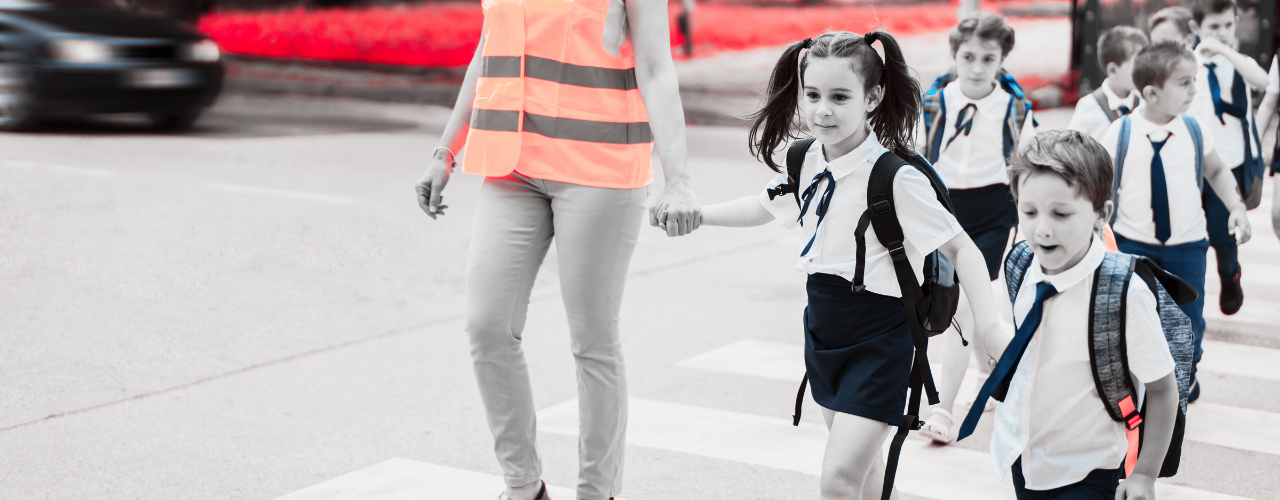
Laudato Si’ was published 9 years ago this week. “Laudato Si’ Week” began as a way to celebrate the first anniversary of the publication – a groundbreaking appeal for environmental care as a justice and devotional issue – and the tradition has been maintained since. This year, the event coincides with Biodiversity Week and focuses on that theme. But this article will focus on a tangential topic: Traffic management as a social justice issue, and specifically around the Dublin City centre Transport Plan.
Traffic Management is Social Justice
Dublin City Council has voted to enact a plan aimed at eliminating “through traffic” through the city centre, so as to create pedestrian spaces free of traffic. The overall vision is to create a low-traffic city-centre with public transport, walking and cycling prioritised. Removing cars that are just travelling through the city centre allows green spaces and biodiversity to flourish, creating a more liveable and healthier space for everyone.
The consultation process was extensive. Media coverage – including televised advertisements – and direct engagement aimed to engage as many stakeholders and residents as possible. A total of 3,592 surveys and written submissions were submitted, including one from JCFJ. The overwhelming response to the consultation was positive. It is clear that when you ask people, most will say that the city centre, as is, does not function. Private cars hamper the progress of public transport. Busy roads make narrow footpaths treacherous. The air and noise pollution emitted from traffic ensures that the city centre is not a pleasant place to be. The space which is taken up by cars results in less apace for biodiversity, play, or simply sitting. It is commonplace for Irish people to come home from holiday and comment on the calm, pleasurable urban environments they find in continental Europe. The reason they are such a novelty is because of our capitulation to car culture.
What is abundantly clear is that the city centre is currently not a safe space in which to cycle. The primary way in which you create spaces which are safe for cyclists and pedestrians is to remove or reduce the threat of motorised traffic. Reallocating space for cars to people walking and cycling is the best way to do this. With full implementation this plan could do this.
Who gets to lobby?
This week IBEC (Irish Business and Employers Confederation) called to pause the implementation of the Dublin City Centre Traffic Plan. IBEC are concerned on the impact on businesses in the city centre. While several large businesses in the city centre, including owners of car parks, signalled in the consultation process that they were against the plan, Dublin City Council has confirmed that IBEC did not make a submission during the consultation process. If they had, their concerns would have been noted and considered alongside the thousands of others who participated in the process.
This attempt to derail this much needed traffic management plan – which is without a doubt a social justice issue – can be viewed as a cynical lobbying attempt to circumvent the common good for the perceived benefit of having more people in cars in the city centre. It can also be viewed as an undemocratic manoeuvre – just before the local elections – by a powerful lobby group which should not have its voice heard louder than thousands of others who participated in the democratic process of public consultation and advocacy during the planning process.
Why should we tolerate a situation where monied interests overrule the democratic functioning of our capital city?
The health of our cities are not only about the profit which can be generated by large companies. (Of course, creating a more walkable city also makes excellent financial sense for the economy of the city – if not for the people who run multi-storey car parks.) It is more holistic that that – it is about the quality of air and green space. It is about the opportunities for connection with each other outside of metal boxes and away from distracting noise. It is about having the space and time to engage and eat and shop in the city centre without having to worry about getting hit by cars or stressing about children breaking free of tightly held hands.
Of course, having an economically viable city centre is important but it cannot be more important than the dignity and safety of the actual people who live, work, and visit the city centre. It is also proved to be a false dichotomy. Car free spaces can actually increase retail sales and boost economic activity. The decision to lobby against changes which are good for both people and businesses is both frustrating and baffling.
It also demonstrates a profound weakness in Irish business culture. The whole justification for business owners accumulating wealth is that they are the ones who take the risk to make a product available in a changing market. Entrepreneurs who are afraid of adapting do not deserve the title. The last thing true capitalists should want to do is use the State to protect the status quo. IBEC are not just opposing the democratic will of the people, they are obstructing the creativity of the market.
In this week of Laudato Si’ we remember Pope Francis’s call for Integral Ecology and consider how “The human environment and the natural environment deteriorate together; we cannot adequately combat environmental degradation unless we attend to causes related to human and social degradation” (LS 48). How we combat environmental and social degradation is one policy, one action at a time. Efforts to stymie these actions should be resisted. These anti-democratic interventions should be understood as the attempts at bullying that they really are. And the only way to stop a bully is to stand up to them.

